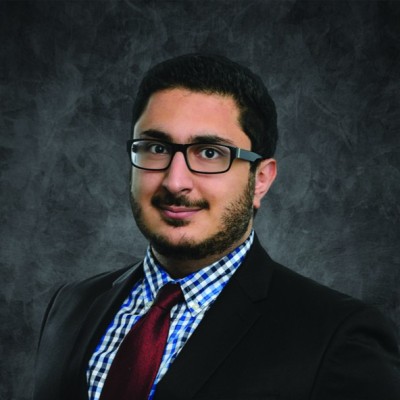From Tehran to Denver: How Hard Work and Responsibility Helped One Iranian Land the Cybersecurity Gig of His Dreams

Tehran is about 7,000 miles from Denver — and for Soheil Mirzaei, it probably felt even further. After growing up in the Iranian capital, Soheil arrived in America with just $500 in his pocket. “That’s not exactly a sustainable livelihood for even a month,” he laughed.
Soheil’s American Dream began with long hours spent working in retail. Like so many newcomers to the United States, he dug deep, eventually rising to become a member of Best Buy’s famous Geek Squad. That scratched a tech itch he’d had since university — but now, he wanted to specialize.
Soheil knew just where to focus: cybersecurity. As he put it, working in this highly technical and important field is like jumping from “the math you learn in school to the math an academic actually uses.”
Pursuing the American Dream
Before he could begin his new career, Soheil needed to learn the ropes. It was no easy task, but he soon spotted an ad for University of Denver Cybersecurity Boot Camp. Frustrated with his current job — “If I get stuck here, I’m not gonna be able to move up” — he decided to apply, thinking “Let’s give it a shot!”
Just as well. Soheil’s experience at the boot camp would transform his life, ultimately securing him a fantastic new job in Colorado.
The transformation began with the teaching itself. From Splunk to Metasploit, the boot camp taught all the necessary tools, protocols, and procedures — but the technical side of cybersecurity always dovetailed with crucial lessons in self-discipline.
“The reality is that these are the tools for the responsibilities that you’re going to take,” Soheil explained. “Our instructors emphasized that we’re going to experience a lot of responsibility, and wanted to be sure that we’d be comfortable with that.” After all, whatever cybersecurity experts work on, there’s always the risk of hackers causing “breakage on the other side.”
Putting in the work — and receiving support
Though he’d dabbled in tech both back in Iran and through his work at Best Buy, Soheil was initially unsure if he was totally comfortable with this career move. He didn’t have much experience in cybersecurity, and the learning curve at the boot camp was often steep.
It didn’t help that he was juggling study with 40 hours of work each week, all of which impacted his confidence — and made him worried he wasn’t keeping up. Luckily, Soheil’s instructors were not only eager to prepare him for the world of cybersecurity, they also knew how to support him on a human level.
“If it feels like you’re not learning, you can vent,” Soheil said. “You have to start asking your instructors questions, because they are experts in the field. It’s okay if you don’t know everything.”
It helped, too, that Soheil felt close to his fellow students. They hailed from wildly different backgrounds — and, like him, many had only entered cybersecurity later in their careers. “That was really cool, really humbling,” he said. “We’re all in this together.”
Taking responsibility
After finishing the boot camp, Soheil began looking for work. Earlier this year, he landed an interview for a cybersecurity role with Charles Schwab. In addition to being tested on the exact things he’d learned in the boot camp (particularly Splunk), Soheil was able to draw on his broader experiences at the University of Denver.
“I had knowledge of corporate IT,” he said. “I had knowledge of my technical abilities. I had the knowledge that I might sometimes not know stuff, and had to learn more. That honesty was the reason I got hired.”
Since May, Soheil has been working as a systems engineer at Charles Schwab’s Denver office. Looking back, he also credits his instructors’ focus on responsibility with helping him prepare for his new career.
“That was the best part,” he said. “I always got a sense of a bigger responsibility, which could have been stressful if I wasn’t prepared for it.”
Giving back
After the “blessing” of moving to America and learning so much in the boot camp, Soheil wanted to give back, sharing his experiences at the Cybersecurity AMA for prospective students and giving a talk at a Boot Camp Network event.
No wonder, then, that he’s so keen to recommend his University of Denver Cybersecurity Boot Camp to others — even if, like him, newcomers don’t grasp everything immediately.
“Don’t think that if you don’t get results in the first second then it’s done,” he said. “Remember that you’re investing in two things. First: the class, obviously. Second: you’re investing in yourself to move up. Ask questions, take notes, and keep that information around.”
Given how far Soheil himself has traveled — in more ways than one — this is surely good advice. Once a fresh immigrant with only a few hundred bucks in his pocket, he’s living proof of just how far you can come with humility, perseverance, discipline, and just the right amount of encouragement when things get tough.

 Live Chat
Live Chat